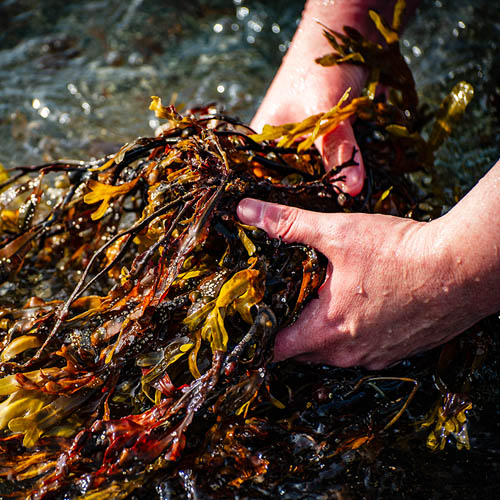Research Report: 2022
▼ Choose a report:

Powered by Research & Graduate Studies

Powered by Arts and Social Science

Powered by Science and the Environment


Dr. Emily Doyle. Photo credit: Chris Hammond.
Through her PhiLab research, Dr. Emily Doyle hopes to deepen understanding of the way in which philanthropy is able to build and sustain transdisciplinary partnerships for social and environmental impact in Atlantic Canada.
The two-year project is a PhiLab SSHRC partnership research project funded by Mitacs, The Lawson Foundation and Metcalf Foundation. The project proposes a two-pronged approach. First, Emily has been working to build capacity within the PhiLab Atlantic Hub with both researchers and community and/ or philanthropic organizations to develop new partnership research projects which focus on responding to emergent needs of community partners.
Second, Emily has been developing her own research project which sets out to understand the potential and current impact of philanthropy on the ground for food systems transformations. This research was built on a theoretical alignment between food systems research which has prioritized an understanding of food sovereignty and Indigenous rights in this country along with emerging learnings from Indigenous-led philanthropy which teach a model for sharing and caring based on the story of how food was and is harvested and distributed for the community and is wrapped up in relations with not only people but place, "It is this connection between Indigenous led philanthropy and seeking more equitable food systems that helps to justify why my research came to focus on one example of food systems transformation in Atlantic Canada."
Her connection with Chief Peggy White of the Three Rivers Mi'kmaq Band, as well as funding through the Office of Public Engagement's Community Scholar Fund, secured an opportunity for Dr. Doyle to relocate with her family to Stephenville for two months. "I first met Chief Peggy as she connected with Grenfell to seek advice and support for her developing plan of strengthening the food system to achieve health equity for her community," she said. "The time spent connecting with Chief Peggy and developing an understanding of people and places on the West coast is helping me connect my research process deeper to place."
Dr. Doyle is currently working on developing an inventory of funding channels communities use to support food system actions and also what funding channels are available to communities to support these actions. "It is in connection to these unfolding events and relationships in the region that I work to understand from the ground up and to support how people in this region are responding to food system issues," she said.
Relatedly, Dr. Doyle has been working with a community based team in St. George's and Bayview Academy to support the all-grade school in transforming its food system to be more healthy and sustainable. Working together on a project funded by a Farm to Cafeteria grant led to a strategic planning day at the Bay St. George Community Hub to bring together members of the school community to help plan, support this project and develop a shared understanding of goals and actions. The crossover between the "Bayview Land to Cafeteria" project and the process many Indigenous and other communities in NL are undertaking is the way in which people are working together to build capacity to build a stronger, more equitable, food production and distribution system. "My research involves building on and sharing an understanding of some of the challenges and opportunities in moving forward with the goal of food as a human right - a food sovereignty approach," she said, adding that these conversations have also helped her understand how much there is to learn about the history of the Mi'kmaq on the island. "This is a very important learning for me and I'm trying to cautiously understand. I still have so much to learn."
Rounding off her activities is the opportunity to work as a research assistant with a research project led by Dr. Engler-Stringer at the University of Saskatchewan called "Examining Canadian School Food Models to Inform Decision-Making for a Universal and Nationally Harmonized School Food Program."
This research involves conducting case studies of exemplary school food programs in three Atlantic Canadian provinces.
"These cross-provincial Atlantic Canada case studies are helping me to understand how jurisdictional differences flavour food system transformations," said Dr. Doyle.
For more information about this research, contact Dr. Doyle at emilyd@grenfell.mun.ca.